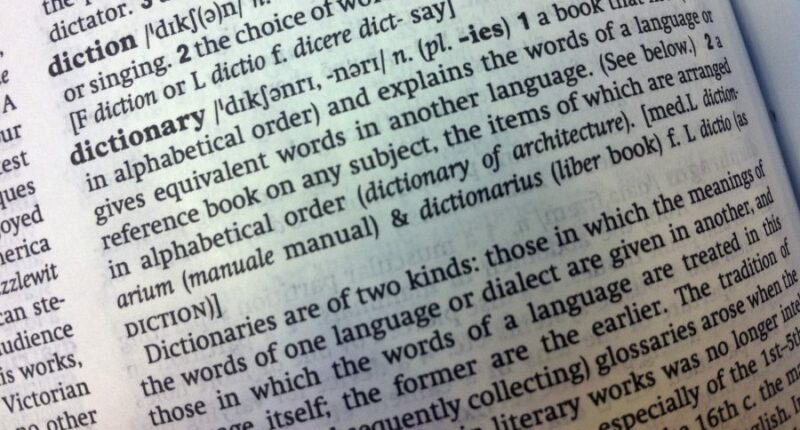Share this @internewscast.com

Video above: ‘Polarization’ is Merriam-Webster’s 2024 word of the year
LONDON (AP) — What the skibidi is happening to the English language?
“Skibidi” is one of the slang terms popularized by social media that are among more than 6,000 additions this year to the Cambridge Dictionary.
“The impact of internet culture on the English language is both intriguing and noteworthy for documentation in the dictionary,” stated Colin McIntosh, who manages the lexical program at Cambridge Dictionary, the most extensive online dictionary in existence.
The term “Skibidi,” originated by the creator of an animated YouTube series, is a whimsical word that can mean “cool,” “bad,” or sometimes serve as a joke without any specific meaning.
Upcoming dictionary entries include “tradwife,” which combines “traditional wife” to describe a married mother engaged in household duties and social media activity, and “delulu,” an abbreviated form of delusional, used to describe someone holding unrealistic or false beliefs, often willfully.
The rise in remote work since the pandemic has led to the addition of “mouse jiggler,” a device or software that tricks systems into thinking you’re active on your computer when you’re not.
Environmental concerns have prompted the inclusion of “forever chemical,” which refers to a harmful substance that persists in nature indefinitely.
According to the company, Cambridge Dictionary utilizes the Cambridge English Corpus—a collection containing over 2 billion words from written and spoken English—to analyze how frequently and in which contexts new words are used by various speakers.
“We only add words where we think they’ll have staying power,” McIntosh said.











